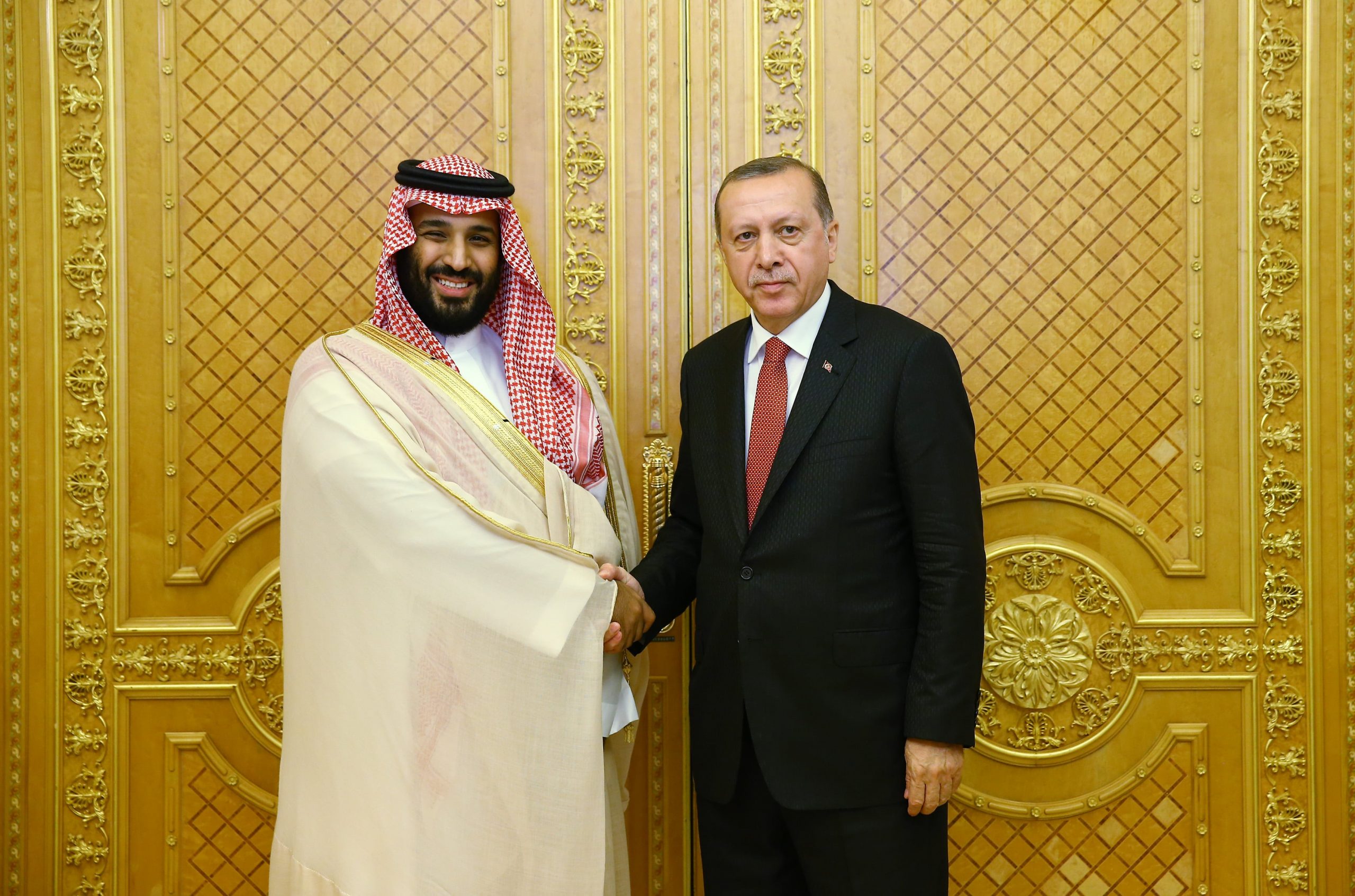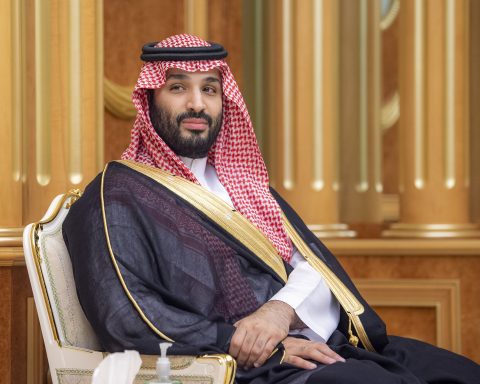Turkish President Recep Tayyip Erdogan said at the beginning of January he would conduct a visit to Riyadh in February, in response to a question about Turkish exporters’ issues with Saudi Arabia. This visit will be the first by the Turkish President since the 2018 murder of Jamal Khashoggi inside the Saudi Consulate in Istanbul. However, whether it will be just after his visit to Abu Dhabi on February 14 and 15 or before has not been announced yet. There are sources that point out the possibility of the postponement of this visit to a later date.
Conditions are now favorable to mend the bilateral relations between Turkey and Saudi Arabia, in light of international and regional changes that require all countries to review their positions and policies. The Turkish government has been patient with Saudi media campaigns against Turkey, waiting for the moment when Riyadh will want to improve its relations with it. Ankara is working to strengthen its existing ties with Gulf countries and to remove the current relative coldness between Turkey and some of these countries, because it believes that any conflict between the countries of the region harms them and benefits others, including superpowers.
Turkish-Saudi relations deteriorated due to the difference in the two countries’ positions on the Arab Spring revolutions. Riyadh sided with dictatorial regimes, while Ankara supported the demands of the rebellious people for freedom, dignity, and democracy. Then, the assassination of the Saudi journalist Jamal Khashoggi came, and the bilateral relations between the two countries deteriorated further.
Turkey, as a democratic country that has suffered from military coups, had to support the free and democratic will of the people and it was an honorable moral position. Turkey does not regret this decision. But, at the same time, it does not seek to export democracy as some countries do and does not support any political party or group, neither the Muslim Brotherhood nor any other, against the ruling regime. Also, Turkey does not have armed militias in other countries that are fighting to achieve its interests. Rather, it wishes for security, safety and stability for all the countries of the region and their people.
The Khashoggi assassination took place in Istanbul, and the team responsible used Turkey’s land and airport. Therefore, Turkish authorities could not remain silent over this crime, which violated its sovereignty. Consequently, Ankara did everything it could to uncover the circumstances of the heinous crime and punish those involved. It had nothing left to do but achieve justice.
In addition to this, Ankara welcomed and accepted Saudi Arabia’s trial following the murder of journalist Jamal Khashoggi, as announced by Turkey’s presidential advisor and spokesperson Ibrahim Kalin, and added that Turkey would seek ways to repair the relationship with a more positive agenda with Saudi Arabia as well. Turkey has noticed that the Khashoggi case is being used by the United States to pressure Saudi Arabia to obtain concessions in its favor. It has also been realized that the deterioration of Turkish-Saudi relations serves the interests of Greece.
There was an alliance between four countries, namely the United Arab Emirates (UAE), Saudi Arabia, Bahrain, and Egypt, and these countries were taking common positions as seen in the siege of Qatar and the consequent hostility toward Turkey. Today, however, it cannot be said that this alliance maintains its solidity. Rather, it has become so fragile that it may disintegrate completely. I think the most important thing in the relations between Turkey and the Gulf states is that Abu Dhabi was inciting Riyadh against Ankara because of Turkey’s position on the Arab Spring, but this incitement disappeared after the restoration of Turkish-Emirati relations. Also, Turkish-Bahraini relations began to improve and return to normal in parallel with the improvement of Turkish-Emirati relations. Turkish Foreign Minister Mevlut Cavusoglu visited Manama and met with Bahraini Crown Prince Salman bin Hamad Al Khalifa and his Bahraini counterpart, Abdullatif bin Rashid Alzayani, to discuss steps to be taken to further improve bilateral relations. A meeting of the Joint Economic Commission between the two countries will take place in the next few months. All these developments pave the way for the restoration of Turkish-Saudi relations.
In light of the COVID-19 pandemic that has posed significant challenges for supply chains globally, the Saudi boycott of Turkish products harmed both parties, not just the Turkish side. Certainly, Saudi businessmen and companies have lost a lot of money because of this official boycott imposed by the Saudi government on the Saudi people. Due to the boycott, Saudi consumers have also been deprived of Turkish products that are of high quality and reasonable prices. At the same time, there are also attractive investment opportunities for Saudi businessmen in Turkey. It is known that Turkish cities and highlands located on the coasts of the Black Sea in northern Turkey are among some of the most favored places for Saudi Muslim tourists to spend their summer vacations with their families due to the beauty of the scenic views, the availability of halal foods and mosques, in addition to hearing the sound of the call to prayer and the absence of Islamophobia. Therefore, the restoration of Turkish-Saudi relations will benefit both sides.
The rapprochement between Turkey and Saudi Arabia will also be in the interests of the two countries in the political and military fields and in achieving regional balances. In this context, the Turkish Foreign Ministry, on January 24, condemned recent Houthi attacks against the UAE and Saudi Arabia. Turkey’s stance, which enhances the capabilities of its army by developing its military industries alongside Saudi Arabia can contribute to strengthening the position of the Saudi-Emirati alliance in Yemen and contribute to protecting the security of the Gulf. Media reports claim that Saudi Arabia could run out of interceptor missiles for its US-made Patriot air-defense system in months and has asked the US and its European allies to supply it with weapons. Thus, Saudi Arabia can buy a number of units of Turkey’s Bayraktar TB2 unmanned combat aerial vehicles (UCAVs) that have proven their effectiveness in Syria, Libya, Iraq, and Karabakh, to enhance the capabilities of its army. The two countries can also cooperate in developing air defense systems, in which Turkey’s efforts have reached advanced levels.
After signing a memorandum of understanding on September 2, 2008, in Jeddah, Saudi Arabia, Turkey became the first country outside the Gulf to be given the status of strategic partner of the GCC. Now, it is looking forward to the return of Turkish-Gulf relations to the same level after removing obstacles that prevented this rapprochement. However, the success of this desire also requires Saudi Arabia to get rid of its obsessions completely and not to see Turkey as an enemy that seeks to destroy the Kingdom.













